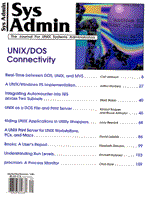
Sidebar: IBM Mainframe Hardware
An IBM mainframe consists of many computing devices connected together. Centered on these devices is the CPU. The existence of these devices allows the CPU to offload computing power relative to specific tasks. Over the years, IBM developed a standard called "Systems Network Architecture (SNA)" for these devices. To understand SNA, it is necessary to understand the term SNA User. An "SNA User" is simply a person or application using the SNA network to communicate with another user. SNA creates virtual or logical paths between users so they can communicate. These paths are called "Logical Units" (or LUs). An LU is a logical port, not a physical port, to which a user connects. The LU is implemented through microcode that resides on the devices in the SNA network. An LU is identified by a number. Along with LUs, SNA uses "Physical Units" (or PUs) that represent the actual devices on the SNA network. "SNA Nodes" are physical points in the SNA network that contain one or more network components. Since an SNA Node represents an actual physical device, there is an SNA PU associated with the device. There are two major types of SNA Nodes: "Peripheral Nodes" and "Subarea Nodes." Peripheral Nodes are attached to Subarea Nodes. A Peripheral Node only talks to the Subarea Node to which it is attached. Peripheral Nodes are also known as "Terminal Cluster Controllers." User terminals are connected to these. The newest type of Cluster Controller is Type 2. The emulation protocol used for these terminals is "3270 Terminal Emulation." Terminals can be configured as either "CUT Mode," which provides only a single session, or "DFT (Distributed Function Terminal) Mode," providing up to five sessions over a single line. Unlike Peripheral Nodes, Subarea Nodes can talk with other Subarea Nodes on the SNA Network. There are two types of Subarea Nodes: Type 5 and Type 4. Type 5 is usually called a "Host Node." It refers to the CPU. Type 4 is usually called a "Communications Controller Node," or Front-End-Processor (FEP). The communications controller has one or many cluster controllers attached to them. For a schematic, see Figure 3.
|